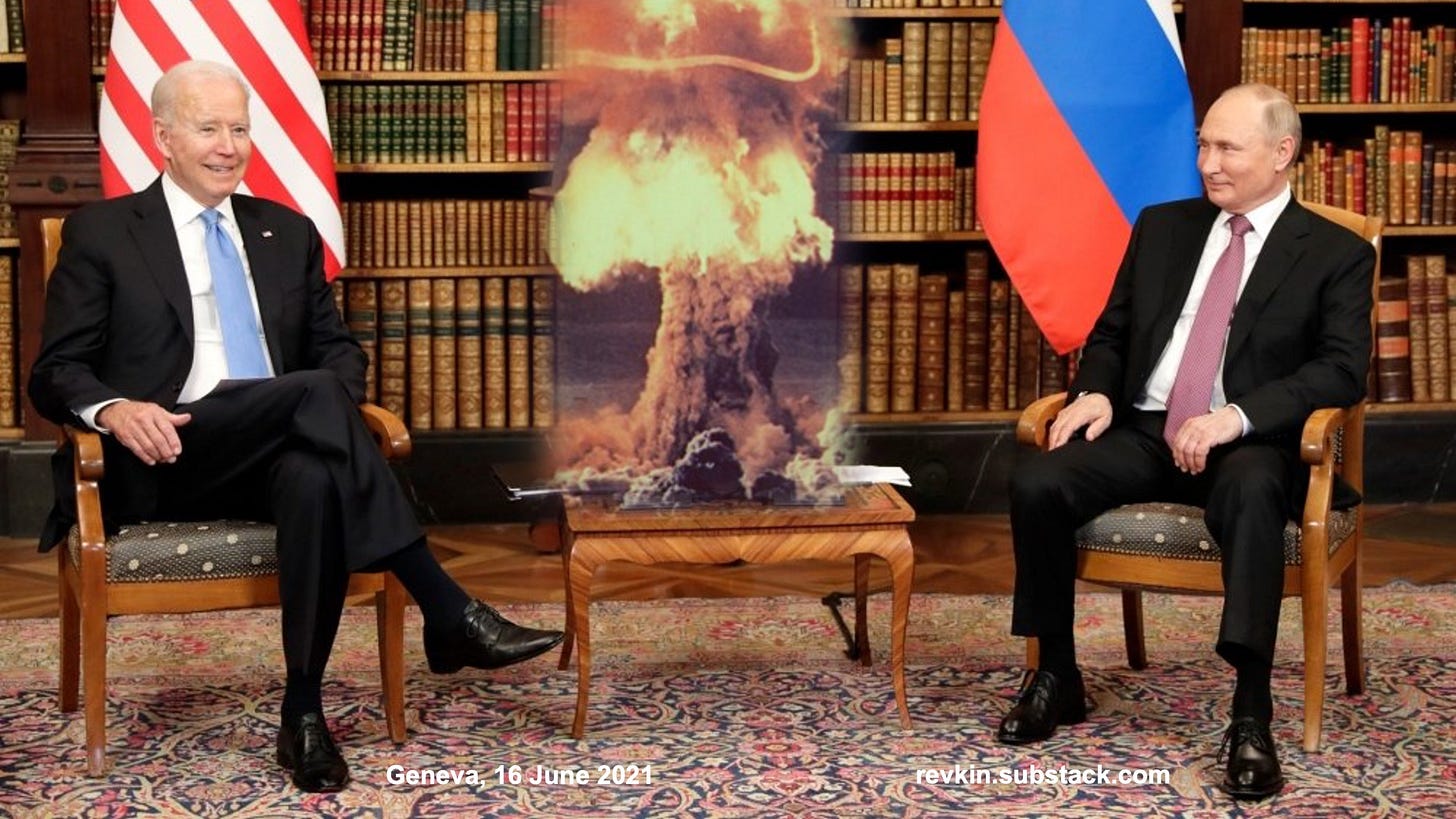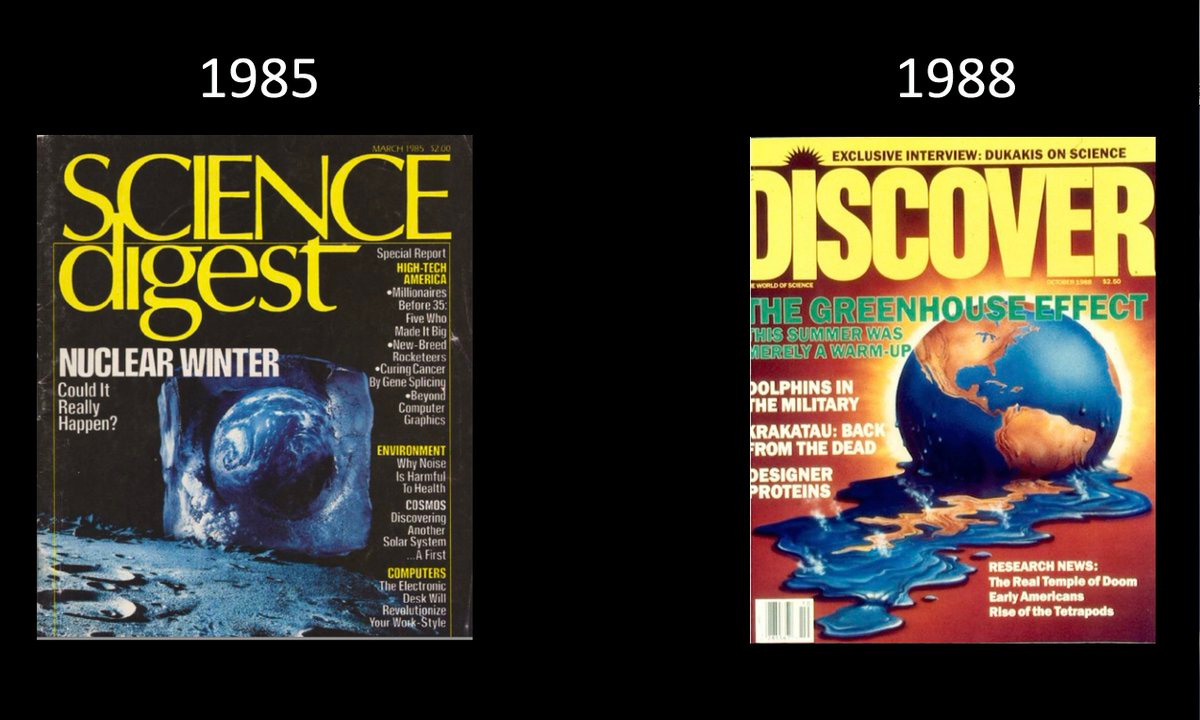Please click the ♡ emoji if you appreciate my work. This helps boost post visibility.
So why am I writing about nuclear war again? As some may recall, I wrote in depth about nuclear winter and related risks in 1985, three years before climate change dominated my beat going forward. It’s maddening that I have to swing back more and more.
This week, starting with leaks and confirmed by Secretary of State Antony Blinken, the Biden administration acceded to Ukraine’s pleas to fire American weapons into Russian territory in its beleaguered northeast. The permission is limited to certain weapons and defensive use.
Like any supporter of Ukraine’s right to exist, and right to self defense, and of a strong American role in helping, I see the logic here given Vladimir Putin’s brutal attacks on Karkhiv and surrounding areas in recent weeks. The BBC’s war map shows the region and why Russia has such an advantage with its border so close to Ukraine’s second biggest city.
But I also have deep and growing concerns about the nuclear small print buried fairly deeply in accounts of this shift. Read this line, the eighth paragraph in Andrew E. Kramer’s fresh report from Karkhiv for The New York Times:
It was a historic moment for the United States as well: It appeared to be the first time an American president had allowed the limited use of American weapons to strike inside the borders of a nuclear-armed adversary.
Beware “inadvertant escalation” when nukes are in play
On our breezy spring day in Maine, or in whatever conditions you find yourself, it remains easy to shrug off the possibility of this conflict spiraling to the point when Putin uses tactical nuclear weapons, or the point when such a use might spiral into full-scale nuclear war.
But given what I learned in earlier reporting about what’s called “inadvertant escalation” by military and security strategists, you shouldn’t take your normal world for granted.
That’s why I found myself agreeing with the prime points in a Common Dreams column written by my former Columbia colleague Jeff Sachs strongly rebuking President Biden for the weapons decision in Ukraine. The headline is Presidents Who Gamble With Nuclear Armageddon. The deck:
Each of the last five presidents, both Democrats and Republicans, have brought us closer to the brink. We desperately need leaders with a knack for peace who can steer the nation, and the world, toward a more secure and less dangerous future.
But here’s the key poiht, built on the wise words of President John F. Kennedy after the Cuban Missile Crisis:
These leaders neglect at our greatest peril the most basic lesson of the nuclear confrontation between the U.S. and Soviet Union in the Cuban Missile Crisis, as told by President John F. Kennedy, one of the few American presidents in the nuclear age to take our survival seriously. In the aftermath of the crisis, Kennedy told us, and his successors:
“Above all, while defending our own vital interests, nuclear powers must avert those confrontations which bring an adversary to a choice of either a humiliating retreat or a nuclear war. To adopt that kind of course in the nuclear age would be evidence only of the bankruptcy of our policy—or of a collective death-wish for the world.”
Yet this is exactly what Biden is doing today, carrying out a bankrupt and reckless policy.
Nuclear war can easily arise from an escalation of non-nuclear war, or by a hothead leader with access to nuclear arms deciding on a surprise first strike, or by a gross miscalculation.
I disagree with Sachs on some of his other views of foreign policy and other matters but think it’s worth reinforcing this reality.
A window on Putin’s atrocities from a war-zone zoo
To get a sense of the destruction and trauma wrought by Russia around Karkhiv, watch the Sustain What webcast I just ran with filmmaker Josh Zeman about his powerful documentary Checkpoint Zoo. The film is an extraordinary portrait of humanity and inhumanity centered on the plight of the humans and other animal at a normally happy-go-lucky wildlife park on the front lines near Karkhiv.
There is heroism, wrenching loss, boundless love and more:
Film Chat: A Ukrainian Zoo Offers a Lens on Inhumanity and Humanity
What’s a nuclear war, anyway?
I do worry about forgetfulness (Hiroshima and Nagasaki were a very long time ago) and “big number numbness” in the context of boosting concern and more concerted action to avoid the path from conflict to global nuclear catastrophe. With that in mind, I’m finally carving time to read Annie Jacobsen’s book “Nuclear War - A Scenario.” If you’ve already done so, weigh in with your thoughts. I’m in touch with her about coming on a Sustain What webcast soon.
And make sure to watch my related Sustain What conversation from this week with Daniel Starosta, who studies how communities both remember and quickly forget calamitous disasters and how to build a culture of preparedness. A big part of the challenge with nuclear war, like the Holocaust, is the span of time since the last weapons flashed and killed.







